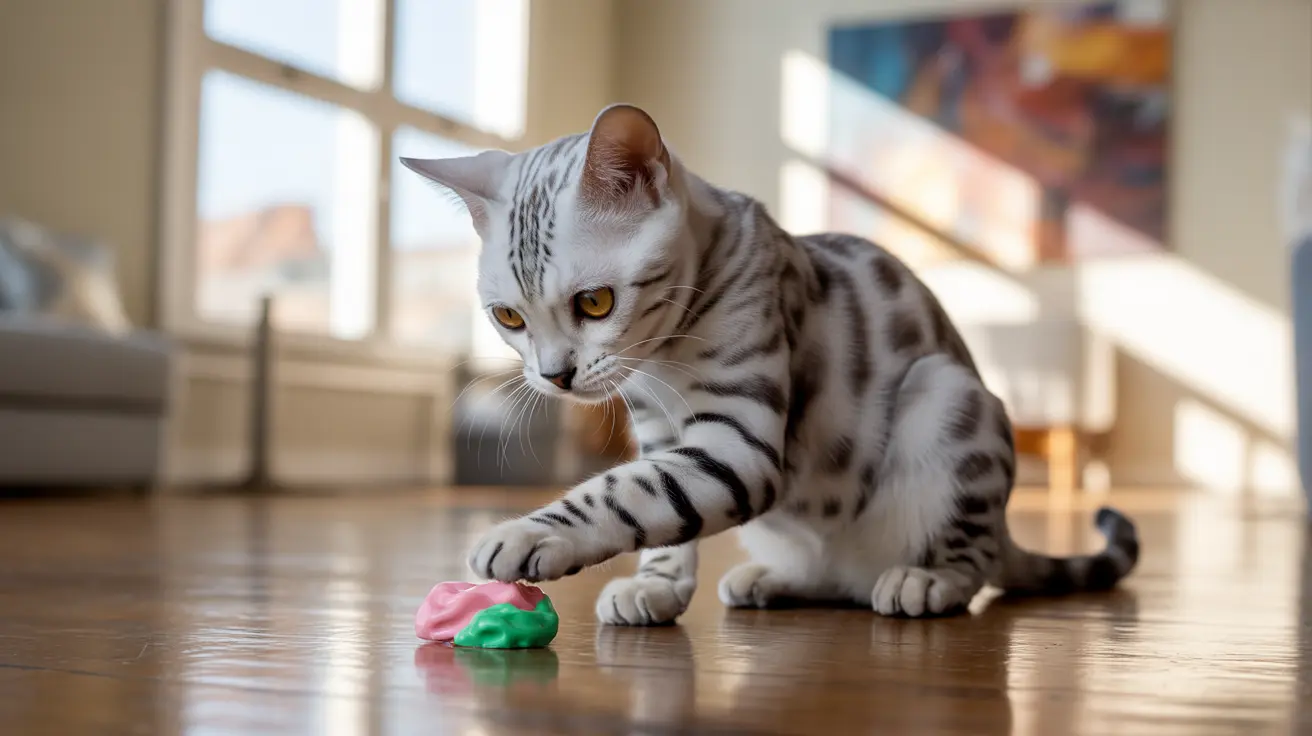As a pet owner, you might wonder if sharing a piece of gum with your feline friend is safe. The straightforward answer is no - cats should never be given gum of any kind. While cats are less likely than dogs to experience severe xylitol toxicity, chewing gum presents several serious health risks that every cat owner should understand.
Let's explore why gum is dangerous for cats and what you need to know to keep your pet safe.
Primary Health Risks of Gum for Cats
Choking Hazards
The most immediate danger of gum for cats is the risk of choking. Cats aren't designed to chew gum, and their small airways make them particularly vulnerable to blockage. The sticky texture can easily become lodged in their throat, leading to a life-threatening emergency.
Intestinal Blockages
If swallowed, gum can cause serious gastrointestinal problems in cats. Since gum isn't digestible, it can create blockages in the digestive tract that may require emergency surgery to remove. Even small pieces can accumulate over time and cause significant issues.
Understanding Xylitol and Cats
While xylitol toxicity is a well-known danger for dogs, its effects on cats are less severe but still concerning. Cats typically need to consume much larger amounts of xylitol compared to dogs before showing toxic effects. However, this doesn't mean it's safe.
Signs of Potential Xylitol Exposure
If your cat has consumed gum containing xylitol, watch for these symptoms:
- Vomiting
- Lethargy
- Loss of coordination
- Seizures (in severe cases)
Prevention and Safety Measures
The best way to protect your cat is through prevention:
- Store all gum in sealed containers
- Keep purses and bags containing gum out of reach
- Dispose of used gum in covered trash bins
- Educate family members about the dangers of sharing gum with pets
What to Do in an Emergency
If your cat has consumed gum, take these immediate steps:
- Contact your veterinarian immediately
- Note the type and amount of gum consumed
- Watch for signs of distress or unusual behavior
- Have the ASPCA Animal Poison Control number (888-426-4435) readily available
Frequently Asked Questions
Can cats safely chew or eat chewing gum containing xylitol?
No, cats should never be given gum containing xylitol or any other sweetener. While cats are less sensitive to xylitol than dogs, the risk of choking and intestinal blockage makes all gum dangerous for cats.
What are the signs my cat might be choking or having a blockage from swallowing gum?
Watch for pawing at the mouth, difficulty breathing, excessive drooling, gagging, vomiting, or signs of distress. For blockages, look for decreased appetite, constipation, lethargy, and abdominal pain.
How toxic is xylitol to cats compared to dogs, and what symptoms should I watch for?
Cats are less sensitive to xylitol than dogs, requiring much higher doses to show toxic effects. However, watch for vomiting, lethargy, loss of coordination, and in severe cases, seizures.
What should I do if my cat accidentally eats chewing gum?
Contact your veterinarian immediately. Note the type and amount of gum consumed, and watch your cat closely for signs of distress or unusual behavior.
Are all types of chewing gum dangerous to cats, or only those with artificial sweeteners?
All types of gum are dangerous to cats, regardless of ingredients. While xylitol-free gum may not pose a toxicity risk, all gum can cause choking or intestinal blockages.
Remember, when it comes to your cat's health and safety, it's always better to err on the side of caution. Keep all gum and similar products safely out of your cat's reach, and provide only cat-specific treats and toys for their enjoyment.






